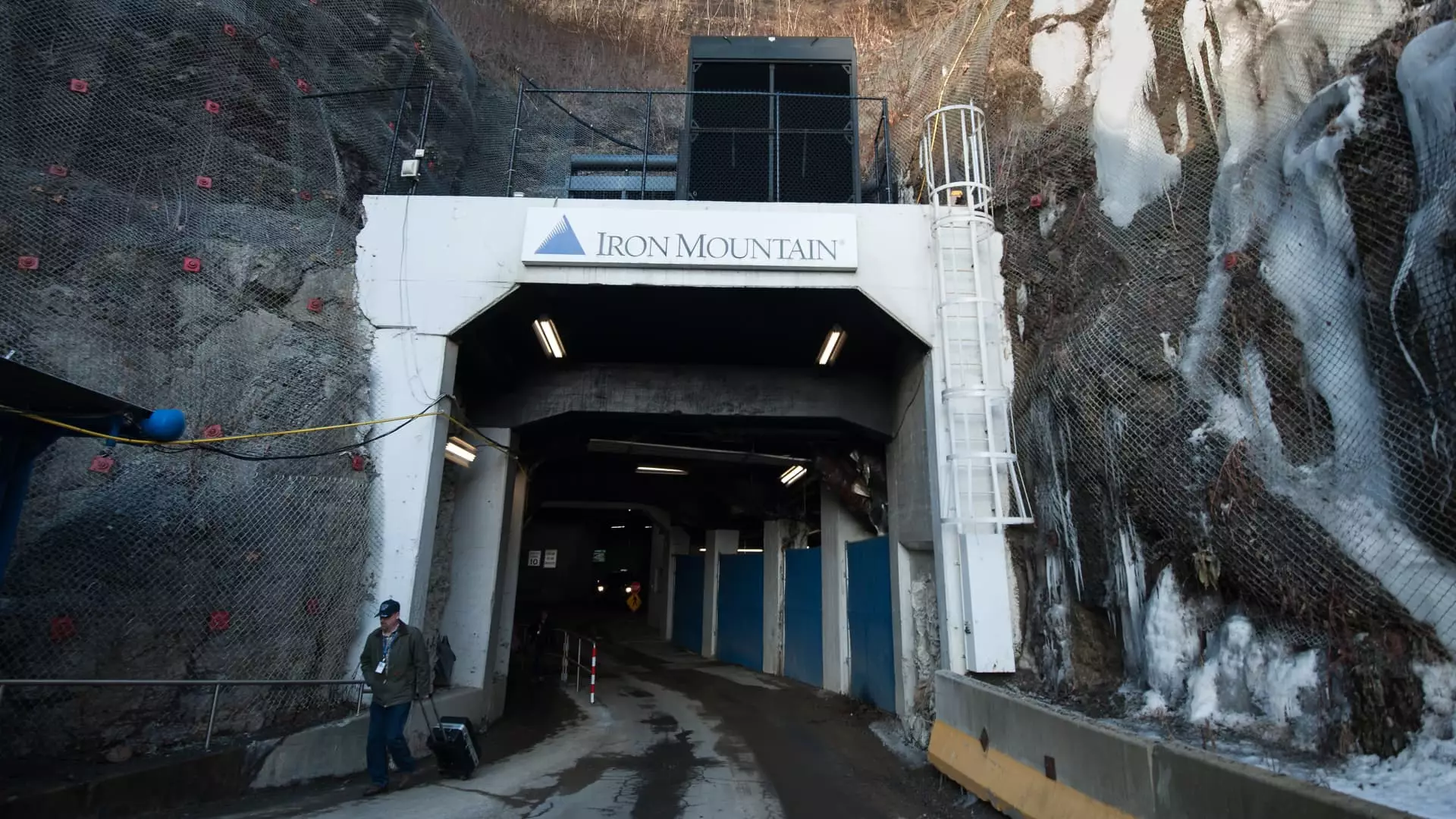Elon Musk’s recent remarks while standing alongside President Donald Trump in the Oval Office have illuminated the stark contrasts between private innovation and public sector inefficiencies. Musk’s criticisms centered on the federal government’s approach to managing retirement paperwork, which he described in vivid detail as being reminiscent of antiquated systems from the mid-20th century. By highlighting a limestone mine in Pennsylvania where retirement files are stored, Musk painted a picture that resonated with those frustrated by bureaucratic sluggishness. His characterization of the mine, operational since 1955 and now managed by Iron Mountain, provoked discussions about how governmental processes lag in the face of advancements in technology.
Musk’s observations serve not only as a critique but also as a challenge to the federal government to embrace efficiency technology. The mine, where elevators dictate the pace of operations, symbolizes the need for an overhaul of outdated methodologies that hinder the timely processing of important documents. Musk’s emotional appeal—”Doesn’t that sound crazy?”—suggests a call to action, urging government officials to prioritize modernization over traditional methods that no longer meet today’s needs.
Central to these discussions is the establishment of the Department of Government Efficiency (DOGE). The department aims to identify and address inefficiencies within federal agencies, with Musk at the helm driving this initiative forward. This move comes amidst heightened scrutiny surrounding governmental expenditure, particularly as the Trump administration aims to streamline costs. Musk’s platform within DOGE is being viewed as a beacon of efficiency, compelling government bodies to analyze how they can reduce wasteful practices.
In a surprising twist, Iron Mountain, a company at the center of Musk’s furor over outdated processes, has positioned itself to view this efficiency drive as an opportunity rather than a threat. The company’s response to Musk’s contention illustrates an adaptive mindset that is crucial in a rapidly evolving market. Bill Meaney, Iron Mountain’s CEO, referred to digitization as a valuable growth opportunity for the company, aligning its operations with the federal government’s need for modernization and efficiency.
Despite such optimism from Iron Mountain’s leadership, the stock market responded with evident trepidation. Following Musk’s comments, shares of Iron Mountain plummeted by over 10%. Investors reacted swiftly to the perceived risk associated with the company’s federal contracts, which, while currently modest in revenue, are strategically important to its operations. As investors assessed the situation, concerns grew that potential changes in contracts under Musk’s efficiency initiative could jeopardize Iron Mountain’s financial stability.
However, not all analysts shared this bearish outlook. Some, like Wells Fargo’s Eric Luebchow, deemed the market’s reaction as an overreaction. Highlighting that Iron Mountain’s revenue stream is not overly reliant on federal contracts, Luebchow suggested that the company would likely remain resilient even in the face of potential contract alterations. Such insights contribute a balanced perspective to the discourse and provide a counterpoint to the immediate panic shown by investors.
Musk’s criticism and subsequent discourse surrounding federal contracts could fundamentally reshape the landscape of government contracting. With his focus on efficiency, there lies an opportunity for companies like Iron Mountain to innovate their service delivery models. By leveraging new technologies, they could streamline operations not only within their framework but also throughout federal agencies, thereby enhancing overall productivity.
As discussions swirl around modernization and transformation, firms collaborating with government agencies can glean important lessons from Musk’s inputs. The spotlight on federal inefficiencies serves as a clarion call for all stakeholders to evolve and adapt. The potential shift from traditional practices to technologically advanced methodologies can lead to a more responsive and responsible government infrastructure that better serves its employees and constituents alike.
Ultimately, Elon Musk’s comments reflect a growing impatience with inefficiencies that have persisted for decades within the federal government. As the landscape shifts towards a potential re-evaluation of government contracting practices, all eyes will be on how agencies respond to the call for efficiency. While the ramifications of Musk’s initiative may still be unfolding, the conversation he has sparked could lead to the much-needed transformation of governmental operations and practices in the 21st century. As stakeholders navigate this new terrain, the collaboration between private innovation and public efficiency will undoubtedly be pivotal in shaping a more effective infrastructure for future generations.

